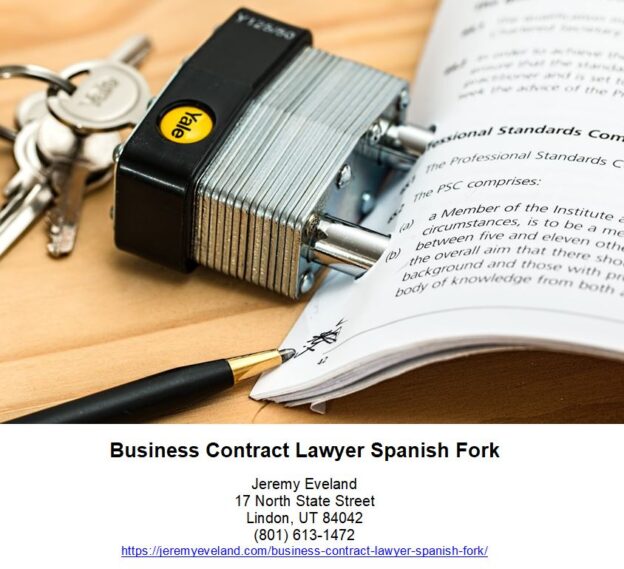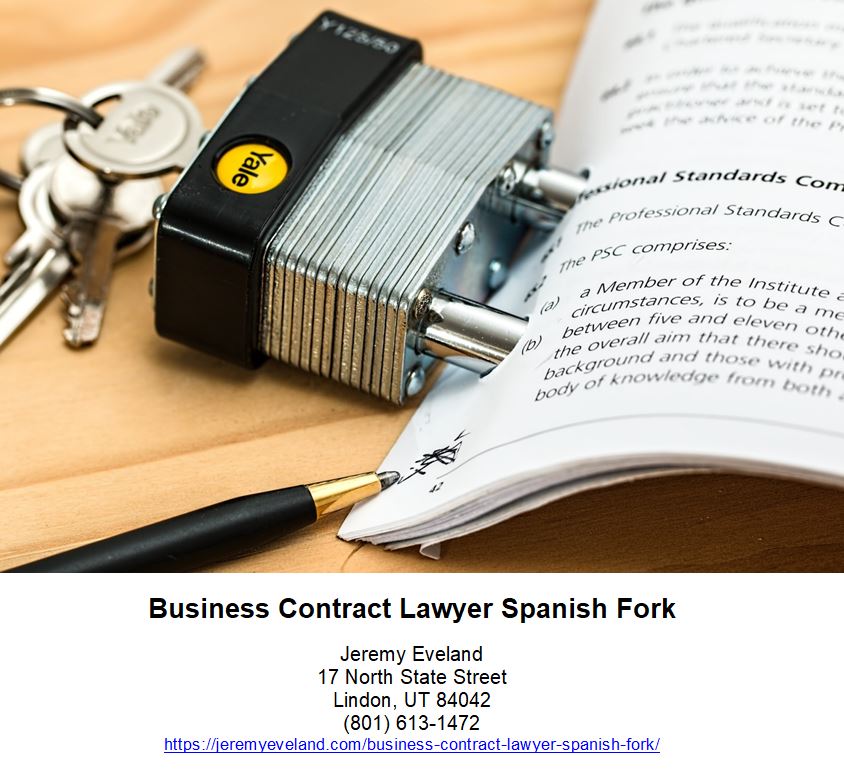This page is about Business Law.
Understanding the concept of Conflict of Interest for Lawyers
A conflict of interest for a lawyer is a critical ethical issue that can impact the legal profession significantly. It arises when a lawyer’s personal interests interfere with their professional obligations to a client, leading to potential harm, bias, or unfair advantage. Recognizing and addressing conflicts of interest is fundamental for upholding the integrity and credibility of the legal system.
Definition and Scope of Conflict of Interest
As legal practitioners, lawyers owe a fiduciary duty to act in the best interests of their clients. A conflict of interest occurs when a lawyer’s independent professional judgment is compromised due to competing personal, financial, or other interests. This conflict can arise in various situations, such as representing clients with conflicting interests, personal relationships with involved parties, or financial stakes in the outcome of a case.
Ethical Implications for Lawyers
Ethical rules and codes of professional conduct mandate that lawyers avoid conflicts of interest to maintain credibility and trust with their clients. Lawyers are required to disclose any potential conflicts at the outset of representation and obtain informed consent from clients to proceed with the representation. Failing to address conflicts of interest can lead to legal malpractice claims, disciplinary actions, and reputational damage.
Types of Conflict of Interest in Legal Practice
There are different types of conflicts of interest that lawyers may encounter in their practice:
- Multiple Client Conflicts: Representing clients with conflicting interests in the same matter can jeopardize the lawyer’s ability to provide unbiased advice and representation to each client.
- Personal Conflicts: Lawyers may have personal relationships with parties involved in a case, creating a conflict between their duty to the client and loyalty to the personal relationship.
- Financial Conflicts: Having a financial stake in the outcome of a case, such as investment interests or business relationships with involved parties, can compromise a lawyer’s impartiality and judgment.
Managing Conflicts of Interest
To address conflicts of interest effectively, lawyers should implement the following strategies:
- Conflict Checking Systems: Establishing robust conflict checking procedures to identify potential conflicts before taking on a new client or matter.
- Disclosure and Consent: Promptly disclosing any conflicts to clients and obtaining informed consent to proceed with the representation after full disclosure of the conflict.
- Ethics Training: Providing ongoing ethics training to lawyers and law firm staff to increase awareness of potential conflicts and ethical obligations.
Business Lawyer Farmington Utah
Understanding the concept of conflict of interest is paramount for lawyers to uphold ethical standards, maintain client trust, and preserve the integrity of the legal profession. By proactively identifying, disclosing, and managing conflicts of interest, lawyers can navigate complex ethical dilemmas and fulfill their duty to provide competent and unbiased legal representation. Vigilance and adherence to ethical rules are essential to mitigate the risks associated with conflicts of interest and ensure professional integrity in the practice of law.
Types of conflicts that lawyers may encounter in their practice
Legal professionals are expected to act with the utmost integrity and put their clients’ interests above all. However, there are situations where conflicts of interest may arise, presenting ethical dilemmas that lawyers must navigate carefully.
Understanding Conflict of Interest for Lawyers
A conflict of interest for a lawyer occurs when their personal interests or other commitments clash with their professional responsibilities to their clients. It can create a situation where the lawyer’s judgment or loyalty to a client may be compromised, impacting the quality of legal representation.
Types of Conflicts Lawyers May Encounter
- Dual Representation: One common conflict is when a lawyer represents multiple clients with competing interests in the same legal matter. This scenario can arise in business transactions, divorces, or real estate deals. In such cases, the lawyer must ensure that they can provide impartial advice and prioritize each client’s best interests without favoring one over the other.
- Financial Interests: Lawyers may face conflicts related to financial interests, such as investing in a client’s business or having a financial stake in the outcome of a case. This can cloud their judgment and lead to biased advice or actions that benefit their personal finances rather than the client’s needs.
- Personal Relationships: Personal relationships with clients, witnesses, or opposing counsel can also create conflicts of interest. If a lawyer has a close personal relationship with an individual involved in the case, it may influence their ability to make impartial decisions or maintain confidentiality.
- Previous Client Relationships: Lawyers who have previously represented a client in a related matter may encounter conflicts if they are now representing a new client with conflicting interests. Maintaining confidentiality and avoiding disclosure of privileged information from past clients is crucial to upholding ethical standards.
Managing Conflicts of Interest
To effectively manage conflicts of interest, lawyers must disclose any potential conflicts to their clients and seek informed consent to proceed with representation. If the conflict is severe or cannot be resolved, the lawyer may need to withdraw from representing one or more parties to avoid compromising their professional integrity.
Legal Implications
Failure to address conflicts of interest can lead to legal consequences, professional disciplinary actions, or reputational damage for lawyers. Bar associations and regulatory bodies closely monitor conflicts of interest cases to uphold ethical standards and protect the integrity of the legal profession.
Conflicts of interest are complex ethical challenges that lawyers encounter in their practice. By proactively identifying and addressing potential conflicts, legal professionals can uphold their duty of loyalty and provide competent, unbiased representation to their clients. Prioritizing ethical considerations and maintaining transparency in client relationships are essential for navigating conflicts of interest effectively.
Implications of conflicts of interest in legal representation
Conflicts of interest in legal representation can have significant implications on the integrity of the legal profession and the trust clients place in their attorneys. An essential aspect of legal ethics, conflicts of interest occur when a lawyer’s personal or financial interests interfere with their professional obligations to act in the best interest of their clients. Understanding the nature and consequences of conflicts of interest is crucial for both lawyers and clients to maintain ethical standards and ensure fair legal representation.
Identifying Conflicts of Interest
Lawyers are expected to provide undivided loyalty and zealous advocacy to their clients. However, conflicts of interest can arise in various scenarios. One common situation is when a lawyer represents multiple clients whose interests conflict with each other. This can occur in litigation, business transactions, or family law cases where the interests of clients directly oppose each other. Additionally, conflicts of interest can also emerge when a lawyer’s personal relationships or financial interests clash with the client’s case.
Ethical Implications
Conflicts of interest raise ethical concerns as they compromise the lawyer’s ability to provide unbiased and competent legal advice. When a lawyer is influenced by competing interests, they may prioritize their own interests over those of their clients. This can lead to breaches of confidentiality, inadequate representation, or even manipulation of legal proceedings to benefit the lawyer personally. Such ethical violations not only harm the client but also tarnish the reputation of the legal profession as a whole.
Legal Consequences
In addition to ethical implications, conflicts of interest can result in severe legal consequences for lawyers. Legal malpractice claims can arise if a lawyer’s conflict of interest leads to financial losses or adverse legal outcomes for the client. Bar associations and disciplinary boards may also impose sanctions ranging from fines and suspension to disbarment for attorneys found guilty of violating conflict of interest rules. These legal ramifications highlight the importance of lawyers maintaining ethical standards and avoiding conflicts of interest.
Client Rights and Protections
Clients have the right to expect undivided loyalty and confidentiality from their attorneys. When conflicts of interest arise, clients may be deprived of fair and impartial representation. To protect client rights, legal systems have established rules and guidelines to address conflicts of interest. These regulations require lawyers to disclose any potential conflicts, obtain informed consent from clients, and, if necessary, withdraw from representation to avoid compromising the client’s interests.
Maintaining Integrity in Legal Practice
Maintaining integrity in legal practice requires a proactive approach to identifying and addressing conflicts of interest. Lawyers must conduct thorough conflict checks before taking on new clients or cases to ensure they can provide diligent and impartial representation. Open communication with clients about any potential conflicts is essential to uphold transparency and trust in the attorney-client relationship. By upholding ethical standards and prioritizing the interests of their clients, lawyers can preserve the integrity of the legal profession and safeguard the rights of those they represent.

Conflicts of interest pose significant challenges to the legal profession, compromising ethical standards and jeopardizing client rights. By understanding the implications of conflicts of interest, lawyers can uphold their duty to provide competent and unbiased representation while maintaining the trust and integrity of the legal system. Adhering to ethical guidelines, practicing transparency, and prioritizing client interests are essential practices for lawyers to navigate conflicts of interest effectively and preserve the core principles of legal ethics.
Strategies to mitigate conflicts of interest for lawyers
Creating Effective Strategies to Manage Conflicts of Interest for Lawyers
Conflicts of interest are a common challenge faced by lawyers in their professional practice. It occurs when a lawyer’s personal or financial interests conflict with their duty to act in the best interest of their clients. Identifying and managing conflicts of interest is crucial to maintain professional ethics, uphold client trust, and prevent legal complications. In this article, we will explore effective strategies that lawyers can implement to mitigate conflicts of interest and navigate ethical dilemmas successfully.
Importance of Addressing Conflicts of Interest
Addressing conflicts of interest promptly is essential to prevent any adverse impact on the lawyer-client relationship and uphold the integrity of the legal profession. Failing to address conflicts of interest can lead to ethical violations, legal malpractice claims, and damage to the lawyer’s reputation. Therefore, it is paramount for lawyers to have a clear understanding of what constitutes a conflict of interest and how to manage it effectively.
Mastering Business Law: Key Essentials For Success
Establish Robust Conflict Checking Procedures
Law firms must implement robust conflict-checking procedures to identify potential conflicts of interest before taking on new clients or cases. Maintaining comprehensive records of current and past clients, opposing parties, and relevant parties involved in legal matters can help lawyers promptly flag any conflicts that may arise. Leveraging conflict checking software and conducting regular conflict searches can streamline this process and minimize the risk of inadvertently representing conflicting interests.
Transparent Communication with Clients
Open and transparent communication with clients is key to addressing conflicts of interest ethically. Lawyers should inform their clients promptly if a potential conflict is identified and seek informed consent to proceed with representation. Clear communication about the nature of the conflict, its implications, and how it will be managed demonstrates professionalism and upholds the client’s right to make an informed decision about their legal representation.
Implementing Effective Internal Controls
Law firms should establish robust internal controls to manage conflicts of interest effectively. Designating a conflicts clearance officer or a conflicts committee responsible for reviewing potential conflicts can ensure that conflicts are identified and addressed promptly. Implementing written policies and procedures for handling conflicts of interest, conducting regular training sessions for lawyers and support staff, and fostering a culture of ethical awareness can strengthen the firm’s conflict management framework.
Seeking Independent Legal Advice
In cases where conflicts of interest cannot be adequately managed internally, lawyers should consider seeking independent legal advice to navigate complex ethical issues. Consulting with ethics committees, bar associations, or legal ethics experts can provide valuable insights and guidance on managing conflicts of interest in a manner that upholds professional obligations and ethical standards.
Effectively managing conflicts of interest is a fundamental aspect of practicing law ethically and maintaining trust with clients. By implementing robust conflict-checking procedures, fostering transparent communication with clients, establishing internal controls, and seeking independent legal advice when necessary, lawyers can navigate conflicts of interest with integrity and professionalism. Prioritizing ethical conduct and compliance with professional standards is essential in upholding the reputation and credibility of the legal profession.
Ethical considerations and regulations surrounding conflicts of interest for lawyers
Lawyers are held to high ethical standards when representing clients in legal matters. One essential aspect of ethical considerations for legal professionals is understanding and managing conflicts of interest. A conflict of interest occurs when a lawyer’s personal or financial interests conflict with their duty to act in the best interests of their client. This article delves into the ethical considerations and regulations surrounding conflicts of interest for lawyers.
Importance of Ethical Considerations
Ethical considerations play a crucial role in maintaining the integrity and trust in the legal profession. Lawyers have a fiduciary duty to represent their clients diligently and ethically. When conflicts of interest arise, it can compromise this duty and impact the lawyer’s ability to provide unbiased legal advice and representation. By adhering to ethical standards, lawyers uphold the principles of justice and fairness in the legal system.
Types of Conflicts of Interest
Conflicts of interest for lawyers can arise in various scenarios. One common type is when a lawyer represents clients on both sides of a legal dispute. This situation may lead to conflicting loyalties and hinder the lawyer’s ability to advocate effectively for either client. Another example is when a lawyer has a personal relationship with an opposing party, which could influence their judgment and impartiality. Financial interests, such as owning stock in a company involved in a case, can also create conflicts of interest.
Regulatory Framework
To address conflicts of interest, legal systems have established regulatory frameworks to guide lawyers’ conduct. Bar associations and professional organizations have codes of ethics that set out rules and guidelines for lawyers to follow. These rules aim to prevent conflicts of interest, ensure client confidentiality, and maintain the integrity of the legal profession. Lawyers are expected to disclose any potential conflicts and seek client consent when representing clients in situations where conflicts may arise.
Managing Conflicts of Interest
Lawyers have a duty to identify and address conflicts of interest promptly. They must conduct conflict checks before taking on a new client or case to ensure there are no existing conflicts that could affect their representation. In cases where conflicts are identified, lawyers may have to recuse themselves from representing a client or seek consent to proceed with representation after full disclosure of the conflict. Open communication with clients about potential conflicts is essential to maintain transparency and trust.
Consequences of Violating Ethical Standards
Violating ethical standards regarding conflicts of interest can have serious consequences for lawyers. Disciplinary actions, such as reprimands, fines, suspension, or even disbarment, may be imposed for breaching ethical rules. In addition to professional repercussions, conflicts of interest can lead to legal malpractice claims, reputational damage, and loss of client trust. By upholding ethical standards and avoiding conflicts of interest, lawyers protect both their clients’ interests and their professional reputation.
Conflicts of interest pose ethical challenges for lawyers and require careful navigation to uphold the principles of integrity and client advocacy. By being vigilant in identifying, disclosing, and managing conflicts of interest, lawyers demonstrate their commitment to ethical conduct and the highest standards of professional responsibility. Adhering to regulatory frameworks and ethical guidelines is essential to maintain trust in the legal system and ensure the effective representation of clients.
Key Takeaway:
In the legal realm, a conflict of interest for a lawyer arises when there is a clash between the lawyer’s professional responsibilities and their personal interests or other professional obligations. This conflict can potentially compromise the lawyer’s ability to act in the best interests of their clients, leading to ethical dilemmas and potential legal consequences. It is crucial for lawyers to understand the concept of conflict of interest to uphold their integrity and maintain the trust of their clients and the legal system.
Lawyers may encounter various types of conflicts in their practice, such as concurrent conflicts where representing one client may adversely affect another client, or successive conflicts where past representations may impede current obligations. These conflicts can arise from financial interests, personal relationships, or even from taking on cases that pose a risk of conflicting interests. Recognizing and addressing these conflicts early on is essential to avoid ethical breaches and uphold professional standards.
The implications of conflicts of interest in legal representation can be far-reaching. They can lead to compromised client confidentiality, impaired judgment, or even legal malpractice claims. Clients rely on their lawyers to provide unbiased and effective representation, and any hint of a conflict of interest can undermine the lawyer-client relationship and the credibility of the legal profession as a whole.
Due Diligence For Buying A Utah Business
To mitigate conflicts of interest, lawyers can implement various strategies, such as conducting thorough conflict checks before taking on new clients or matters, obtaining informed consent from clients when conflicts arise, or even declining representation if the conflict cannot be adequately managed. By adopting proactive measures and maintaining transparency with clients, lawyers can navigate potential conflicts responsibly and ethically.
Ethical considerations and regulations surrounding conflicts of interest for lawyers are paramount. Bar associations and legal ethics rules provide guidelines on how lawyers should identify, disclose, and address conflicts of interest to ensure professional integrity and protect clients’ interests. By adhering to these ethical standards and staying vigilant in managing conflicts, lawyers can uphold their duty to provide competent and loyal representation to their clients while safeguarding the reputation of the legal profession.
Final Thoughts and Summary
Navigating conflicts of interest is a crucial aspect of a lawyer’s professional responsibility. Understanding the nuances involved in identifying and managing conflicts is vital to upholding the integrity of the legal profession and ensuring the trust of clients and the public. Lawyers must be vigilant in recognizing the various types of conflicts that may arise in their practice and take proactive steps to address them effectively.
The implications of conflicts of interest in legal representation cannot be overstated. Failing to address conflicts can lead to legal malpractice claims, damaged reputations, and even disciplinary action. By being aware of the different scenarios that can give rise to conflicts of interest, lawyers can protect themselves and their clients from potential harm while maintaining ethical standards.
To mitigate conflicts of interest, lawyers can implement several strategies. Establishing internal conflict-check systems, maintaining open communication with clients, and obtaining informed consent are essential practices to prevent conflicts from arising or escalating. By being transparent and proactive in addressing conflicts, lawyers can uphold their professional obligations and foster trust with clients and the legal community.
Ethical considerations and regulations play a significant role in how conflicts of interest are managed within the legal profession. Adhering to codes of conduct and ethical guidelines set forth by bar associations and regulatory bodies is paramount for lawyers to maintain their professional standing and reputation. By following these standards, lawyers demonstrate their commitment to integrity, confidentiality, and loyalty in their legal practice.
Conflicts of interest are a complex and challenging aspect of legal representation that require careful navigation and consideration. By understanding the concept of conflicts of interest, recognizing the types of conflicts that may arise, being aware of the implications, implementing effective strategies to mitigate conflicts, and adhering to ethical considerations and regulations, lawyers can uphold the highest standards of professionalism and ensure the best interests of their clients are protected. By prioritizing ethical behavior and transparency in their practice, lawyers can fulfill their duty to provide competent and zealous representation while maintaining the trust and confidence of those they serve.
Areas We Serve in Utah
We serve individuals and businesses in the following Utah locations:
Salt Lake City Utah
West Valley City Utah
Provo Utah
West Jordan Utah
Orem Utah
Sandy Utah
Ogden Utah
St. George Utah
Layton Utah
South Jordan Utah
Lehi Utah
Millcreek Utah
Taylorsville Utah
Logan Utah
Murray Utah
Draper Utah
Bountiful Utah
Riverton Utah
Herriman Utah
Spanish Fork Utah
Roy Utah
Pleasant Grove Utah
Kearns Utah
Tooele Utah
Cottonwood Heights Utah
Midvale Utah
Springville Utah
Eagle Mountain Utah
Cedar City Utah
Kaysville Utah
Clearfield Utah
Holladay Utah
American Fork Utah
Syracuse Utah
Saratoga Springs Utah
Magna Utah
Washington Utah
South Salt Lake Utah
Farmington Utah
Clinton Utah
North Salt Lake Utah
Payson Utah
North Ogden Utah
Brigham City Utah
Highland Utah
Centerville Utah
Hurricane Utah
South Ogden Utah
Heber Utah
West Haven Utah
Bluffdale Utah
Santaquin Utah
Smithfield Utah
Woods Cross Utah
Grantsville Utah
Lindon Utah
North Logan Utah
West Point Utah
Vernal Utah
Alpine Utah
Cedar Hills Utah
Pleasant View Utah
Mapleton Utah
Stansbury Par Utah
Washington Terrace Utah
Riverdale Utah
Hooper Utah
Tremonton Utah
Ivins Utah
Park City Utah
Price Utah
Hyrum Utah
Summit Park Utah
Salem Utah
Richfield Utah
Santa Clara Utah
Providence Utah
South Weber Utah
Vineyard Utah
Ephraim Utah
Roosevelt Utah
Farr West Utah
Plain City Utah
Nibley Utah
Enoch Utah
Harrisville Utah
Snyderville Utah
Fruit Heights Utah
Nephi Utah
White City Utah
West Bountiful Utah
Sunset Utah
Moab Utah
Midway Utah
Perry Utah
Kanab Utah
Hyde Park Utah
Silver Summit Utah
La Verkin Utah
Morgan Utah
Utah Lawyer Consultation
When you need help from a Utah lawyer, call Jeremy D. Eveland, MBA, JD (801) 613-1472 for a consultation.
Jeremy Eveland
17 North State Street
Lindon UT 84042
(801) 613-1472
Related Posts
Understanding Utah’s Labor Laws
Business Lawyer North Salt Lake Utah
Product Liability Laws in Utah
Preventing Cybersecurity Breaches
Business Lawyer North Ogden Utah
Business Lawyer Brigham City Utah
Business Lawyer Centerville Utah
Shareholder Agreements in Utah
Business Lawyer Hurricane Utah
Corporate Attorney West Jordan UT
Estate Planning For Survivorship Considerations
Construction Lawyer West Bountiful Utah
Estate Planning for Business Asset Protection
Are Small Business Loans Worth It?
Business Succession Planning Lawyer
If you need an attorney in Utah, you can call for free consultation:
Jeremy Eveland
8833 South Redwood Road
West Jordan, Utah 84088
(801) 613-1472
https://jeremyeveland.com

























